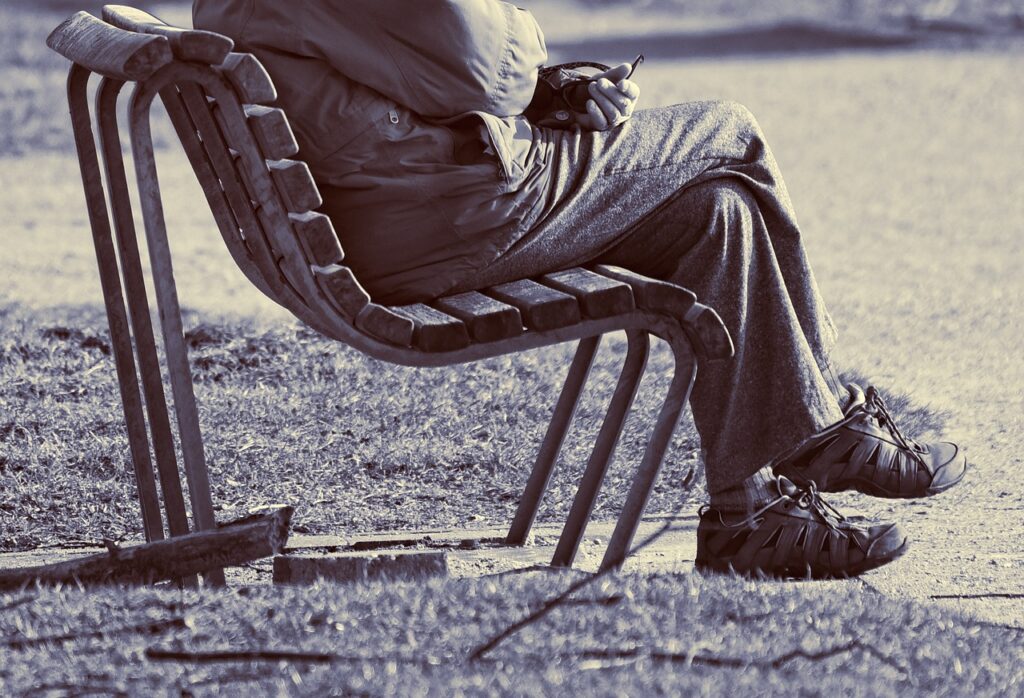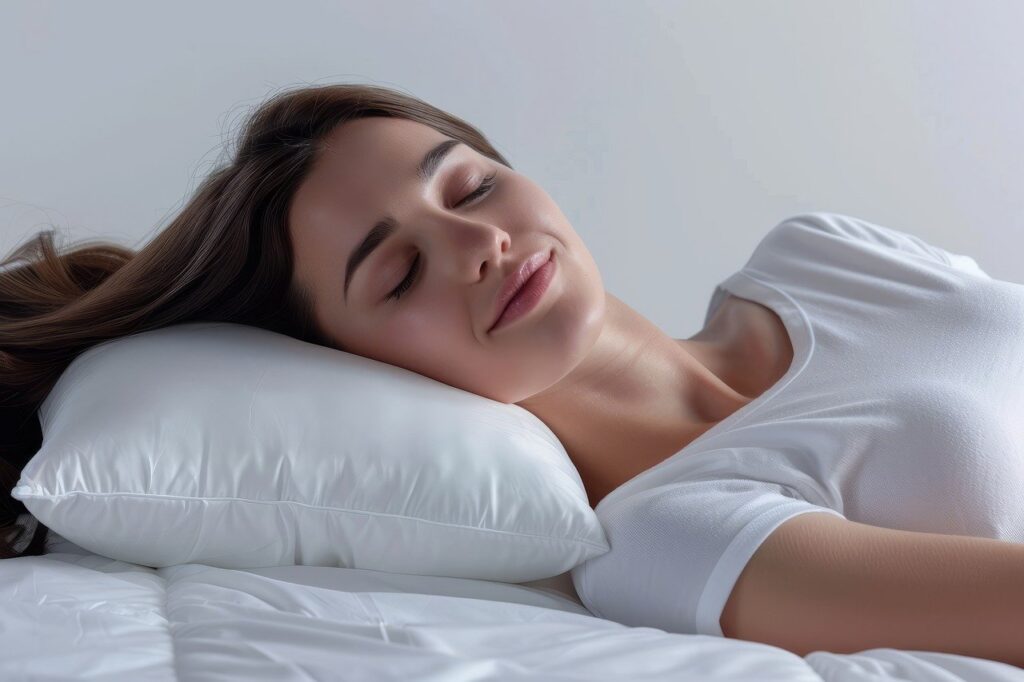Varicose veins are swollen, twisted veins that are often visible just beneath the skin’s surface, typically appearing in the legs and feet. They occur when the valves in the veins weaken or become damaged, leading to blood pooling and increased pressure in the veins. This condition can cause discomfort, pain, swelling, and in severe cases, complications like ulcers and blood clots. While varicose veins are common, particularly in older adults and pregnant women, they can be managed and treated effectively with Ayurveda, the ancient Indian system of medicine.
In Ayurveda, varicose veins are seen as a result of an imbalance in the Vata and Pitta doshas, along with a weakening of the body’s Kapha. The condition is often associated with Vata dosha imbalance due to its drying, cooling, and irregular qualities that affect circulation, and Pitta imbalance, which contributes to inflammation and poor vascular health. Ayurvedic treatment for varicose veins focuses on restoring balance to these doshas, improving circulation, reducing inflammation, and strengthening the veins and tissues for long-term health.
Symptoms of Varicose Veins
The symptoms of varicose veins can range from mild to severe. Common signs include:
- Visible bulging veins: Often dark blue or purple in color, these veins may appear twisted or rope-like.
- Pain or discomfort: A feeling of heaviness, throbbing, or aching in the affected area, especially after standing or sitting for prolonged periods.
- Swelling: The affected legs or ankles may swell, especially by the end of the day.
- Itching or burning: The skin over the varicose veins may feel irritated or itchy.
- Leg cramps: Frequent cramping or a sensation of tightness in the legs, particularly at night.
- Skin changes: In severe cases, varicose veins can lead to skin discoloration, ulcers, or the development of blood clots.
In Ayurveda, varicose veins are believed to be caused by poor circulation, weak blood vessels, and stagnation of Ama (toxins) in the body. This stagnation leads to inflammation, which results in pain, swelling, and visible veins.
Causes of Varicose Veins
The development of varicose veins is influenced by a number of factors, many of which are related to lifestyle, genetics, and physiological changes in the body. Common causes and risk factors include:
- Genetics: A family history of varicose veins can increase the likelihood of developing them.
- Aging: As people age, the veins can lose their elasticity, and the valves that regulate blood flow may weaken, increasing the risk of varicose veins.
- Pregnancy: The increased blood volume and hormonal changes during pregnancy can cause veins to become enlarged, particularly in the legs.
- Prolonged standing or sitting: Occupations or activities that require prolonged standing or sitting can hinder blood circulation and contribute to the development of varicose veins.
- Obesity: Excess body weight increases pressure on the veins, especially in the lower body, leading to varicose veins.
- Hormonal changes: Hormonal imbalances, especially during puberty, menopause, or pregnancy, can affect the walls and valves of veins, making them more susceptible to varicosities.
- Injury or trauma: Damage to the veins or surrounding tissues can weaken vein walls and lead to varicose veins.
In Ayurveda, the root causes of varicose veins are often linked to imbalances in Vata dosha, particularly due to poor circulation, dehydration, and lack of physical movement. Pitta dosha imbalance may exacerbate inflammation and venous congestion, while Kapha dosha contributes to sluggish circulation and fluid retention.
Ayurvedic Treatment for Varicose Veins
Ayurveda offers a natural and comprehensive approach to managing and treating varicose veins. The treatment focuses on improving blood circulation, reducing inflammation, and strengthening the veins and tissues. Ayurvedic therapies include dietary modifications, herbal remedies, lifestyle changes, and external therapies that help restore balance to the body and promote overall vascular health.
1. Dietary Modifications
Diet plays a significant role in managing varicose veins. Ayurveda emphasizes foods that help reduce Pitta and Vata imbalances, while supporting healthy circulation and preventing toxin buildup. Here are some dietary tips:
- High-fiber foods: To improve digestion and prevent constipation, which can exacerbate varicose veins by increasing abdominal pressure. Foods rich in fiber, such as whole grains, leafy vegetables, fruits, and legumes, should be included in the diet.
- Anti-inflammatory foods: Include foods with natural anti-inflammatory properties, such as turmeric, ginger, garlic, green tea, and berries. These foods help reduce inflammation in the veins and improve circulation.
- Cooling foods: To balance Pitta dosha, consume cooling foods like coconut, cucumber, watermelon, and mint. These foods can help soothe inflammation in the veins.
- Vitamin C-rich foods: Vitamin C is essential for collagen production, which is vital for the strength and elasticity of the veins. Include oranges, guavas, bell peppers, and broccoli in the diet.
- Stay hydrated: Drink plenty of water to maintain healthy circulation and prevent the thickening of blood. Herbal teas like mint tea, coriander tea, and chamomile tea can also help soothe the circulatory system.
- Avoid salty, greasy, and fried foods: These foods can aggravate Kapha dosha and contribute to fluid retention, which can worsen varicose veins.
2. Herbal Remedies
Ayurvedic herbs can be very effective in treating varicose veins by improving blood flow, reducing inflammation, and strengthening the walls of blood vessels. Some of the most commonly used herbs for varicose veins include:
- Gotu Kola (Centella Asiatica): Known for its ability to improve circulation and strengthen the walls of veins, Gotu Kola is one of the best herbs for treating varicose veins. It is often used to reduce swelling, inflammation, and promote overall vascular health.
- Guggulu (Commiphora wightii): Guggulu is an anti-inflammatory herb that helps in improving circulation and reducing swelling. It is particularly beneficial for reducing inflammation in the veins.
- Horse Chestnut (Aesculus hippocastanum): This herb is known for its ability to strengthen vein walls, improve circulation, and reduce swelling associated with varicose veins. It also helps to reduce the discomfort and pain caused by varicose veins.
- Turmeric (Curcuma longa): Turmeric has powerful anti-inflammatory and antioxidant properties, which help in reducing swelling and improving circulation in the veins.
- Arjuna (Terminalia arjuna): Arjuna is traditionally used to support heart and circulatory health. It helps strengthen blood vessels and improve circulation, making it useful in managing varicose veins.
- Bilva (Aegle marmelos): Bilva helps to reduce inflammation and improve the tone and strength of the veins, supporting healthy circulation.
- Dandelion (Taraxacum officinale): Dandelion has detoxifying and diuretic properties, helping to reduce fluid retention and improve overall circulation.
These herbs can be taken in various forms, including powders, capsules, teas, or decoctions. It is essential to consult an Ayurvedic practitioner for the right dosage and combination based on your specific condition.
3. Lifestyle Modifications
In addition to dietary changes and herbal remedies, Ayurveda emphasizes the importance of lifestyle modifications to improve circulation and reduce the risk of varicose veins:
- Regular exercise: Physical activity helps improve circulation, reduce weight, and prevent the development of varicose veins. Activities such as walking, yoga, and swimming are particularly beneficial for promoting healthy blood flow in the legs.
- Elevate the legs: Elevating the legs above the level of the heart for 15–20 minutes several times a day can help reduce swelling and promote better circulation.
- Avoid standing or sitting for long periods: If you have a job that requires prolonged standing or sitting, take frequent breaks to move around and stretch. This helps prevent blood from pooling in the legs and reduces the risk of varicose veins.
- Wear compression stockings: Compression stockings help support the veins in the legs and reduce swelling. They can be particularly useful for people with a history of varicose veins or those who spend long hours standing or sitting.
- Maintain a healthy weight: Excess weight puts pressure on the veins and can exacerbate varicose veins. Maintaining a healthy weight through diet and exercise can reduce this pressure and improve circulation.
- Practice stress reduction: Emotional stress can contribute to Vata dosha imbalance, which can negatively affect circulation. Practices like meditation, deep breathing, and pranayama (breathing exercises) can help reduce stress and promote overall well-being.
4. External Therapies
Ayurvedic external therapies can also help relieve the symptoms of varicose veins and support the healing process:
- Abhyanga (Oil Massage): A gentle massage using sesame oil, coconut oil, or herbal oils like Brahmi oil or Turmeric oil can improve circulation, reduce swelling, and relieve pain in the affected veins. Abhyanga can be especially beneficial when done regularly.
- Udwarthanam (Herbal Powder Massage): This is a traditional Ayurvedic massage using herbal powders to improve circulation, tone the skin, and reduce swelling in areas affected by varicose veins.
- Cold compress: Applying cold compresses using ice packs or cold herbal infusions like peppermint or cucumber can help reduce swelling and relieve the discomfort associated with varicose veins.
- Sitz baths: Soaking the legs in warm water with Epsom salt or herbal infusions such as turmeric or neem can provide relief from pain and inflammation.
Conclusion
Varicose veins are a common but often bothersome condition, and while conventional treatments may provide temporary relief, Ayurveda offers a more holistic and natural approach to managing and healing varicose veins. By addressing the root causes of the condition, improving circulation, reducing inflammation, and strengthening the veins, Ayurvedic treatments help provide long-term relief. Through dietary modifications, herbal remedies, lifestyle changes, and external therapies, Ayurveda promotes healthier blood vessels and overall vascular health. Always consult with an Ayurvedic practitioner for personalized guidance to ensure the most effective treatment for your unique needs.


